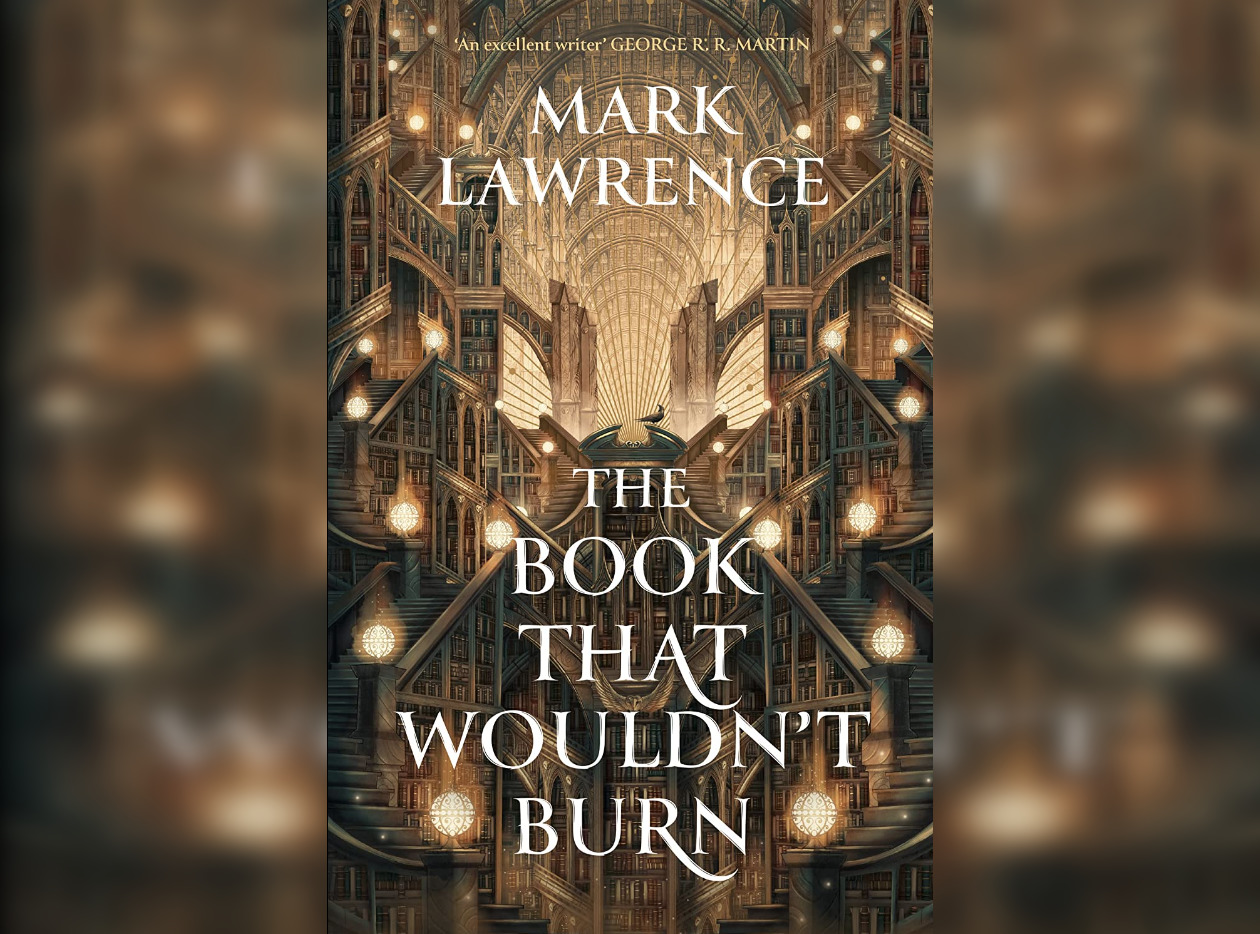
News
Harvard Researchers Develop AI-Driven Framework To Study Social Interactions, A Step Forward for Autism Research

News
Harvard Innovation Labs Announces 25 President’s Innovation Challenge Finalists

News
Graduate Student Council To Vote on Meeting Attendance Policy

News
Pop Hits and Politics: At Yardfest, Students Dance to Bedingfield and a Student Band Condemns Trump

News
Billionaire Investor Gerald Chan Under Scrutiny for Neglect of Historic Harvard Square Theater
‘The Book That Wouldn’t Burn’ Review: A Celebration of Books and Knowledge
2.5 Stars

In Mark Lawrence’s newest novel, “The Book That Wouldn’t Burn,” books rule the world. At the site of a dusty and war-torn wasteland rises the city of Crath, a community built upon the power of an immense magical library. Within this world, readers follow Livira, a girl raised in the barren Dust community outside of the city’s limits to assume the position of librarian, and Evar, a boy eternally trapped within a chamber of Crath’s library. Slowly, these two stories intertwine as the same mystery haunts both Livira and Evar. Mark Lawrence’s newest novel is ambitious and sincere in its premise, but ultimately its weak pacing and character development contribute to its detriment.
Lawrence poured his passion for reading into this universe, which gives the novel an immediate sense of sincerity and wonder. “The Book That Wouldn't Burn” is, at its heart, a celebration of books and the knowledge that they contain. The gigantic library within Crath’s mountain shapes the city’s social structure and provides its citizens with immense power. After Livira’s village in the Dust is taken over by canine-like humanoids called “sabbers,” she enters Crath and begins training to work in the library. There, Livira discovers the joy of reading and writing, a series of scenes sure to delight readers who also love the world of books. As the sabbers begin to threaten Crath as well, Livira decides that she will do anything to protect her new world inside the library.
While the essential theme of knowledge and its power drives much of the book, Lawrence’s character work is not as successful. The relationship between Livira and Evar is a crucial part of the narrative, but the connection lacks legitimacy. After first meeting and then quickly becoming separated early in the novel, Livira becomes motivated to find Evar again. While the reader is told that there is a deep relationship between these two characters, this supposed pivotal encounter is never truly fleshed out on the page. Livira’s obsession is warranted, since she finds Evar hidden within the library’s chambers, but her eventual love for Evar seems to appear out of thin air. Evar likewise goes from curiosity about Livira to downright adoration within pages. While Livira’s relationships with her fellow students in the library are well-developed and Evar’s sibling dynamics are compelling, the reader may have a hard time becoming invested in Evar and Livira’s love story given the little evidence for the onset of their affections.
The story’s pacing also has an adverse effect on the beautiful world that Lawrence builds. While the book’s action is fast-paced and exciting, the development between these scenes often drag. The novel suffers from its 550 page length; the second act consistently hints at the third act, but the action that is promised does not occur until close to the book’s end. Attention is given to seemingly meaningless moments, such as long portions of the book devoted to Livira wandering through Crath’s library. Yet, at the same time, the novel contains inexplicable time jumps that make it difficult for readers to feel satisfied following Livira’s character arc. The novel would benefit from more focus on pivotal character development, such as Livira’s struggles to fit into her new home of Crath, instead of wasting precious pages on filler.
While the character development and pacing in “The Book That Wouldn’t Burn” miss the mark, the themes Lawrence engages with — the power of knowledge and the written word, classicism, balance, and love — make up for these deficiencies. Ultimately, the book’s premise remains captivating, but the piece would simply benefit from a more concise story line and fully realized characters.
—Staff writer Hannah E. Gadway can be reached at hannah.gadway@thecrimson.com.
Want to keep up with breaking news? Subscribe to our email newsletter.
From Our Advertisers

Over 300+ courses at prestigious colleges and universities in the US and UK are at your disposal.

Where you should have gotten your protein since 1998.

Serve as a proctor for Harvard Summer School (HSS) students, either in the Secondary School Program (SSP), General Program (GP), or Pre-College Program.

With an increasingly competitive Law School admissions process, it's important to understand what makes an applicant stand out.

Welcome to your one-stop gifting destination for men and women—it's like your neighborhood holiday shop, but way cooler.

HUSL seeks to create and empower a community of students who are seeking pathways into the Sports Business Industry.
